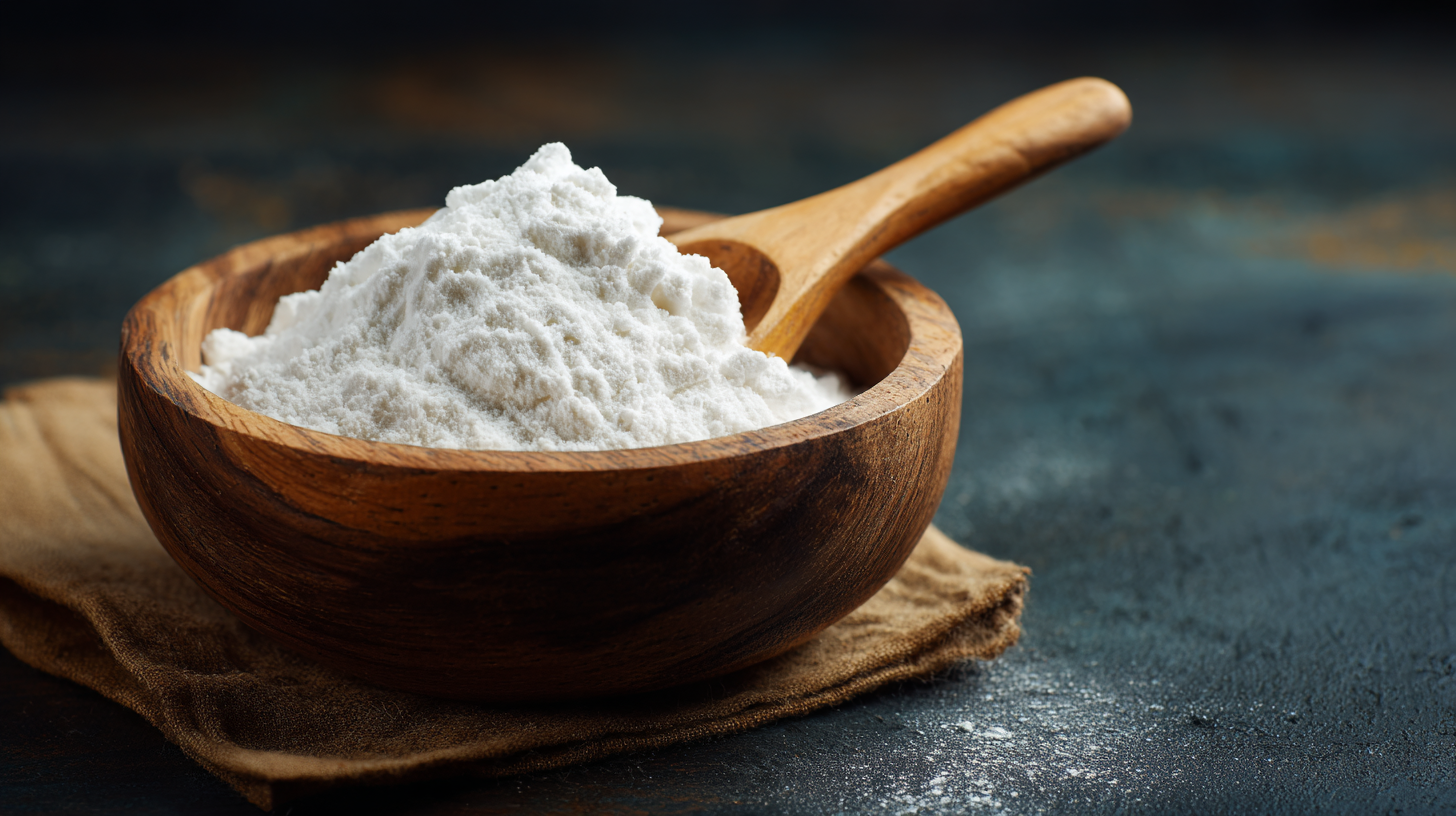Inquiry
Form loading...
 Incorporating Calcium Iodate into your daily nutrition can be a transformative step towards achieving better health. Calcium iodate is a valuable source of both calcium and iodine, essential nutrients that play crucial roles in various physiological processes. While calcium is vital for maintaining strong bones and teeth, iodine is necessary for healthy thyroid function, which regulates metabolism and energy levels.
Incorporating Calcium Iodate into your daily nutrition can be a transformative step towards achieving better health. Calcium iodate is a valuable source of both calcium and iodine, essential nutrients that play crucial roles in various physiological processes. While calcium is vital for maintaining strong bones and teeth, iodine is necessary for healthy thyroid function, which regulates metabolism and energy levels.
Many individuals, however, find it challenging to obtain adequate amounts of these nutrients solely through their diet. This guide will explore practical strategies and tips for effectively integrating Calcium iodate into your daily meals and snacks, ensuring that you reap its health benefits without significant dietary adjustments. By making informed choices and being creative in your cooking, you can enhance your nutritional intake and support your overall wellness with this important supplement.
Calcium iodate is a compound that plays a significant role in nutrition by providing essential iodine and calcium. Iodine is necessary for the production of thyroid hormones, which regulate metabolism and are crucial for growth and development. Adequate iodine intake can help prevent thyroid-related issues, such as goiter and hypothyroidism, while calcium supports bone health and muscle function. Incorporating calcium iodate into your diet can therefore contribute to overall well-being.
Tips for incorporating calcium iodate: Start by checking food labels for calcium iodate, which is commonly added to iodized salt and certain dairy products. This can ensure you are getting this essential nutrient without much effort. Additionally, consider adding calcium iodate supplements to your daily routine, but consult with a healthcare professional first to determine the right dosage. You can also enhance your diet with iodine-rich foods such as fish, seaweed, and eggs, alongside calcium sources like dairy products and leafy greens to achieve balanced nutrition.
Another way to enjoy the benefits of calcium iodate is by using fortified foods in your meals. Look for cereals or plant-based products that contain calcium iodate. By including these in your breakfast or snacks, you can seamlessly integrate these nutrients into your daily caloric intake while enjoying a variety of flavors and textures.
Calcium iodate is a vital compound that serves as a significant source of both calcium and iodine, two essential nutrients necessary for maintaining optimal health. The daily recommended intake for calcium varies depending on age and gender, with adults typically needing about 1,000 mg per day, while postmenopausal women and older adults may require up to 1,200 mg. On the other hand, iodine needs are relatively lower, with the recommended intake set at approximately 150 micrograms for most adults. Incorporating calcium iodate into your diet can help meet these requirements efficiently.
Including calcium iodate in your daily nutrition can be achieved through fortified foods or as a dietary supplement. It blends well with various food products, making it easy to add to your meals. Consuming dairy products, leafy greens, and iodine-rich foods like seafood while also including calcium iodate supplements can ensure you meet your daily nutrient quotas. By carefully curating your diet to include both calcium and iodine, you pave the way for better overall health, supporting bone strength and metabolic functions crucial for well-being.

Incorporating calcium iodate into daily nutrition can enhance your overall health by providing essential minerals that contribute to various bodily functions. One practical tip is to add calcium iodate to foods that are already part of your regular diet. For example, consider mixing it into dairy products like yogurt or milk, which can help mask any potential taste while boosting calcium and iodine intake. Alternatively, it can be incorporated into baked goods by substituting a small amount of regular salt with iodate-fortified salt, ensuring that your family benefits from these vital nutrients without making drastic changes to their meals.
Another effective way to incorporate calcium iodate is through fortifying common snacks. You can sprinkle it on popcorn or mix it into nut butters. This method not only provides an easy way to enhance the nutritional profile of snacks but also encourages variety in food choices. For those who prepare smoothies, adding a small amount to the blend can offer an extra health kick, allowing you to enjoy a delicious beverage while ensuring adequate levels of calcium and iodine in your diet. Making these subtle changes can help everyone in the household reap the benefits of this beneficial compound.

Calcium iodate is a vital nutrient that plays a significant role in maintaining thyroid health, as well as overall well-being. Understanding the bioavailability of calcium iodate can help optimize its health benefits. Bioavailability refers to the degree and rate at which a substance is absorbed and utilized in the body. When incorporating calcium iodate into your diet, it's essential to consider how your body can effectively absorb it. Foods rich in vitamin C can enhance its absorption, making them great companions for meals that include calcium iodate.
Tips for incorporating calcium iodate into your nutrition include adding iodized salt to your cooking or using calcium iodate supplements. You can also consume dairy products, such as yogurt or cheese, which naturally contain calcium and can help your body utilize iodate more effectively. Additionally, incorporating sources of dietary fiber, such as fruits and vegetables, can aid overall digestion and support a healthy metabolic environment for nutrient absorption.
Another great way to maximize the benefits of calcium iodate is through balanced meal planning. Aim for a diet that includes various nutrient-dense foods like leafy greens, nuts, and whole grains, which not only provide calcium and iodine but also other essential vitamins and minerals. By being mindful of food pairings and focusing on a diverse diet, you ensure that your body can make the most out of the calcium iodate you include in your daily nutrition.
When considering the addition of calcium iodate to your daily nutrition, it’s essential to be mindful of potential health risks and considerations associated with its use. While calcium iodate can provide essential iodine, overconsumption may lead to thyroid dysfunction, including both hypothyroidism and hyperthyroidism. People with pre-existing thyroid conditions, pregnant women, and those on certain medications should consult a healthcare professional before incorporating it into their diet.
**Tips:** Start with small amounts to gauge your body’s response. Monitor any changes in your energy levels or mood, as they can be indicators of how well your body is tolerating this supplement. Additionally, consider engaging in regular health screenings to ensure that your iodine levels remain balanced.
It's also crucial to be aware of potential interactions with other dietary components. Calcium iodate may affect the absorption of certain nutrients such as iron and zinc. Thus, spacing out the consumption of supplements and iodine-rich foods throughout the day may help minimize these interactions. Always focus on a well-rounded diet to ensure you receive all necessary nutrients.






